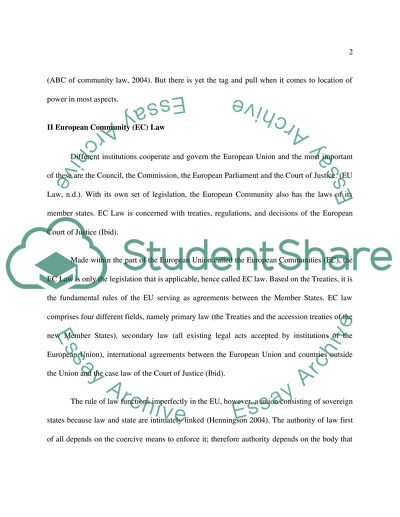Cite this document
(Ultimate Power of the European Union Council Report Example | Topics and Well Written Essays - 1500 words, n.d.)
Ultimate Power of the European Union Council Report Example | Topics and Well Written Essays - 1500 words. https://studentshare.org/law/1535353-despite-the-criticisms-often-levelled-at-the-community-institutions-and-their-powers-to-legislate-it-should-be-remembered-that-ultimate-power-still-lies-with-t
Ultimate Power of the European Union Council Report Example | Topics and Well Written Essays - 1500 words. https://studentshare.org/law/1535353-despite-the-criticisms-often-levelled-at-the-community-institutions-and-their-powers-to-legislate-it-should-be-remembered-that-ultimate-power-still-lies-with-t
(Ultimate Power of the European Union Council Report Example | Topics and Well Written Essays - 1500 Words)
Ultimate Power of the European Union Council Report Example | Topics and Well Written Essays - 1500 Words. https://studentshare.org/law/1535353-despite-the-criticisms-often-levelled-at-the-community-institutions-and-their-powers-to-legislate-it-should-be-remembered-that-ultimate-power-still-lies-with-t.
Ultimate Power of the European Union Council Report Example | Topics and Well Written Essays - 1500 Words. https://studentshare.org/law/1535353-despite-the-criticisms-often-levelled-at-the-community-institutions-and-their-powers-to-legislate-it-should-be-remembered-that-ultimate-power-still-lies-with-t.
“Ultimate Power of the European Union Council Report Example | Topics and Well Written Essays - 1500 Words”. https://studentshare.org/law/1535353-despite-the-criticisms-often-levelled-at-the-community-institutions-and-their-powers-to-legislate-it-should-be-remembered-that-ultimate-power-still-lies-with-t.


